In the dynamic landscape of today’s business world, graphic designers play a pivotal role in shaping brands and communicating messages effectively.
If you’re a creative mind with a passion for design, profitable business opportunities are waiting to be explored.
Let’s dive into the possibilities that merge artistic talent with business spirit.
1. Custom Illustrations for Children’s Books:

Ideas:
Create customized illustrations tailored to children’s book themes, providing to authors and publishers seeking unique and attractive artwork.
Potential:
Growing demand for personalized and high-quality illustrations in the children’s book market.
Cost Estimate: $3,000 – $5,000
| Expense | Cost ($) |
| Digital tools | $1,500 |
| Marketing | $1,000 |
| Professional Fees | $1,500 |
Key Risks:
Competition from stock illustration platforms; subjective nature of artistic preferences.
Examples:
- “Whimsy Illustrations,”
- “Tiny Tales Studios.”
Steps to Start:
- Build an impressive portfolio showcasing diverse styles.
- Establish an online presence on platforms like Behance and Instagram.
- Network with authors and publishers through social media and industry events.
Success Ratio:
Moderate to High.
Time Estimate:
6-12 months to secure consistent projects.
Requirements:
- Proficiency in digital illustration software.
- Portfolio demonstrating versatility.
- Strong communication skills.
Key Tips:
Highlight your unique style, and consider participating with emerging authors for initial projects.
2. Custom Logo Design Services
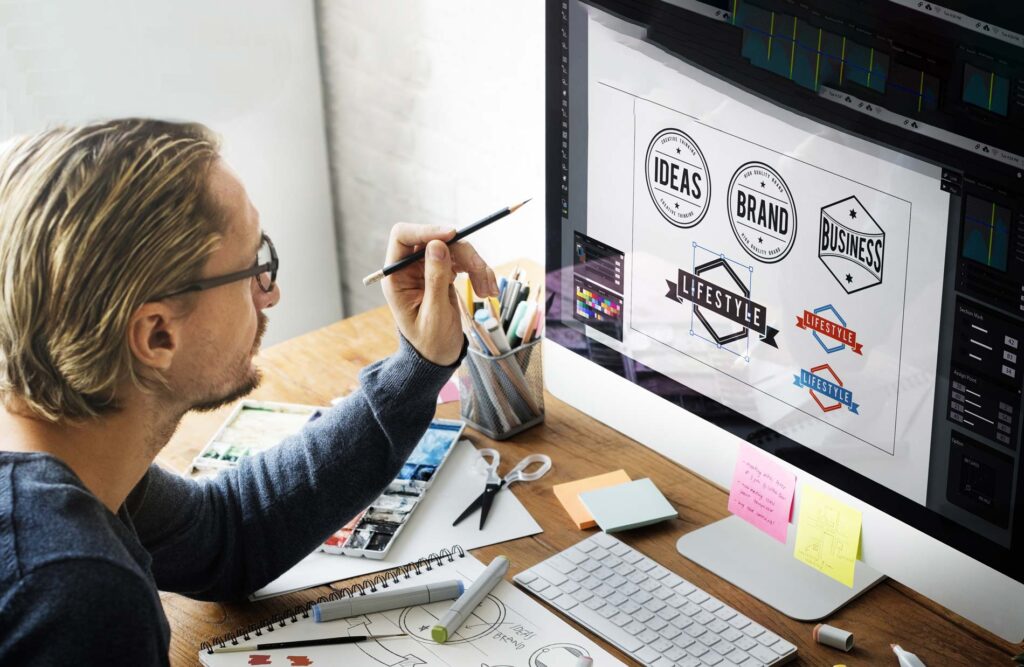
Idea:
Offer made-to-order logo design services customized to individual businesses, ensuring a unique and memorable brand identity.
Potential:
High, as every business needs a distinctive logo. Demand is constant, especially for startups and rebranding initiatives.
Cost Estimate: $2,000 to $5,000
| Expense | Cost ($) |
| Software/Tools | $500 |
| Marketing | $1,000 |
| Portfolio Website | $1,000 |
| Equipment | $500 |
Key Risks:
Heavy competition, changing design trends, and client subjective preferences.
Existing Businesses:
- “LogoGuru,”
- “DesignCraft Studios.”
Steps to Start:
- Build a strong portfolio.
- Create a professional website showcasing your work.
- Utilize social media for marketing.
Success Ratio: 75%
Time to Success: 6-12 months
Requirements:
- Proficiency in graphic design software.
- Strong communication skills.
Key Tips:
Stay updated with design trends, and network with businesses through social media.
3. Social Media Graphic Packages
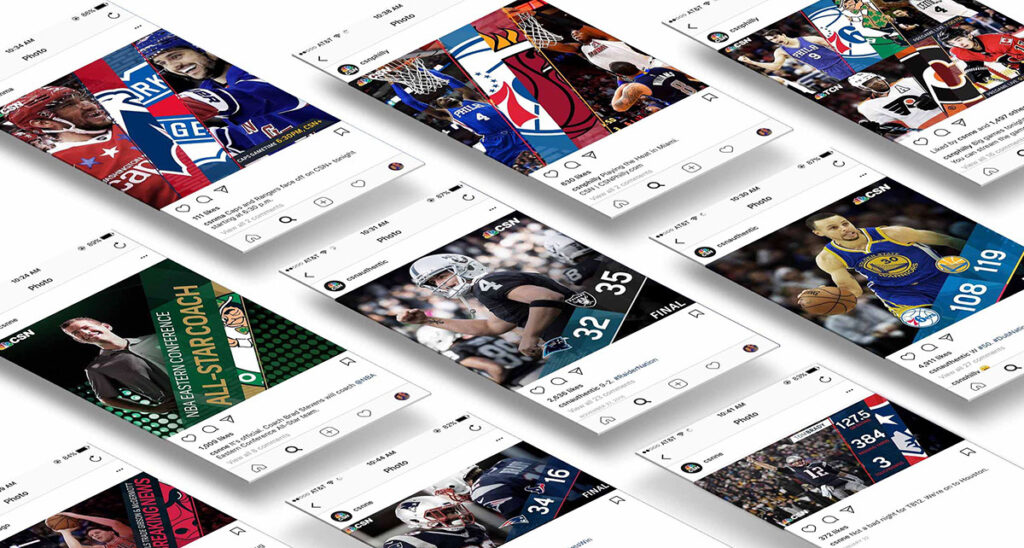
Idea:
Develop social media graphics package preparation for businesses searching a cohesive online presence.
Potential:
High, with the increasing demand for consistent and engaging social media content.
Cost Estimate: $1,500 to $3,000
| Expense | Cost ($) |
| Software/Tools | $300 |
| Marketing | $800 |
| Templates/Assets | $500 |
| Client Management | $400 |
Key Risks:
Sudden shifts in social media algorithms affecting content visibility.
Existing Businesses:
- “SocialVibe Designs,
- ” “PixelPerfect Posts.”
Steps to Start:
- Develop attractive package offerings.
- Establish an online presence.
- Collaborate with influencers for promotion.
Success Ratio: 80%
Time to Success: 6-9 months
Requirements:
- Social media trends awareness.
- Time management skills.
Key Tips:
Keep up with platform changes and engage with your audience consistently.
4. Infographic Creation Service
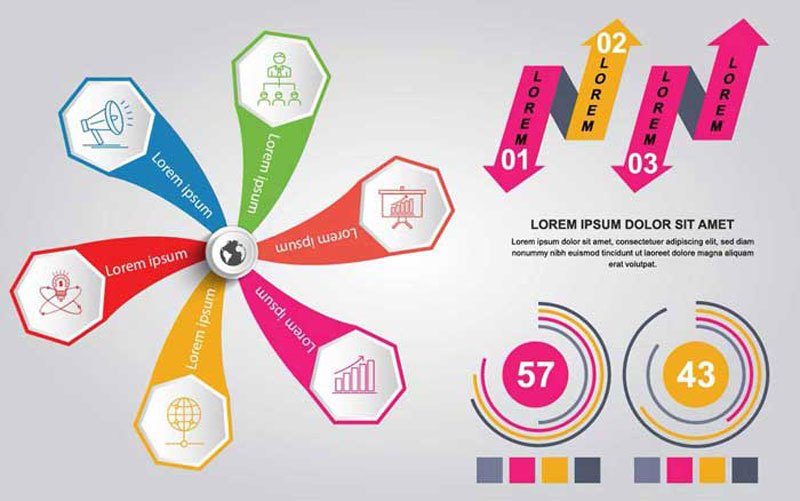
Idea:
Creating visually appealing and informative infographics for businesses, bloggers, and educators.
Potential:
Growing demand for visually engaging content in digital marketing and education sectors.
Cost Estimate:
| Expense | Estimated Cost (USD) |
| Software and Tools | $1,500 |
| Marketing | $2,000 |
| Portfolio Development | $1,000 |
| Website Development | $2,500 |
| Total | $7,000 |
Key Risks:
Competing with free or low-cost infographic tools, ensuring design originality.
Existing Businesses:
- Venngage, Piktochart
Steps to Start:
- Build a diverse infographic portfolio.
- Establish an online presence.
- Offer competitive pricing.
- Collaborate with content creators.
Success Ratio:
Moderate to high. Success depends on marketing strategies and the quality of infographics.
Time to Success:
6-9 months to establish a solid client base.
Requirements:
Graphic design skills, data visualization knowledge, proficiency in design software.
Qualifications:
A degree in graphic design or relevant experience.
Pro Key Tips:
Emphasize the storytelling aspect in infographics.
Provide options for customization.
5. E-Book Cover Design Service

Idea:
Offer a specialized service to authors and publishers by designing eye-catching and marketable e-book covers. Create designs that not only reflect the core of the content but also stand out in the competitive e-book market.
Potential:
As self-publishing grows, the demand for professional e-book covers is on the rise. Authors understand the impact of a visually appealing cover on their book’s success.
Cost Estimate:
| Expense | Estimated Cost |
| Design Software & Tools | $500 |
| Marketing | $1,000 |
| Website Development | $2,000 |
| Stock Photo Subscriptions | $500 |
| Miscellaneous Expenses | $500 |
| Total Estimated Cost | $4,500 |
Key Risks:
Meeting diverse style requirements.
Convincing authors of the correlation between cover design and book sales.
Examples:
- Damonza
- The Book Cover Designer
Steps to Start:
- Develop a portfolio with a range of cover designs.
- Establish partnerships with self-publishing platforms.
- Network with authors and writing communities.
Success Ratio:
High if you can create visually appealing covers arranged with different varieties.
Time to Success:
4-8 months to gain gratitude and build a business.
Requirements:
- Creative design skills.
- Understanding of book categories and market trends.
- Effective communication to understand authors’ visions.
Key Tips:
Offer package deals for series or multiple book covers.
Stay updated on literary trends.
6: Virtual Event Graphic Design Services
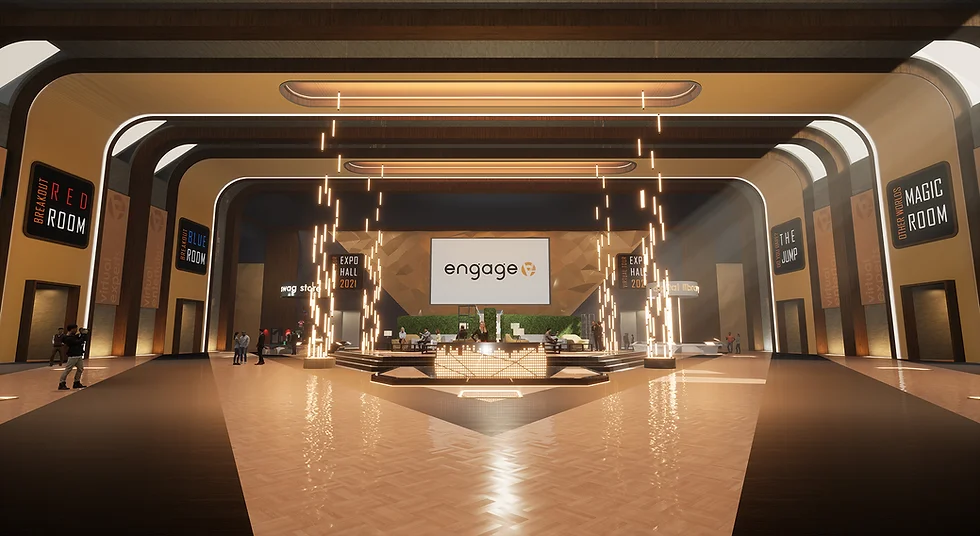
Idea:
Specialize in providing graphic design services for virtual events, including webinar banners, social media promotion visuals, and interactive virtual newsstand designs. With the rise of remote events, there’s a growing need for visually appealing digital assets.
Potential:
As virtual events become more prevalent, the demand for high-quality digital designs to enhance the attendee experience is increasing.
Cost Estimate:
| Expense | Estimated Cost |
| Design Software & Tools | $500 |
| Marketing | $1,000 |
| Website Development | $2,000 |
| Virtual Event Platforms | $1,000 |
| Miscellaneous Expenses | $500 |
| Total Estimated Cost | $5,000 |
Key Risks:
Keeping up with the developing technology of virtual events.
Meeting tight deadlines associated with event schedules.
Examples:
- DesignCrowd
- 99designs (for event design contests)
Steps to Start:
- Develop a portfolio showcasing virtual event design projects.
- Collaborate with event planners and virtual event platforms.
- Stay updated on virtual event trends and technologies.
Success Ratio:
High, given the increasing popularity of virtual events.
Time to Success:
4-8 months to establish a presence in the virtual event industry.
Requirements:
- Proficiency in virtual event design tools.
- Collaboration skills for effective communication with event planners.
- Creativity to enhance the virtual attendee experience.
Key Tips:
Offer package deals for comprehensive event design.
Showcase your designs in virtual event marketplaces.
7: Augmented Reality (AR) Graphics for Retail
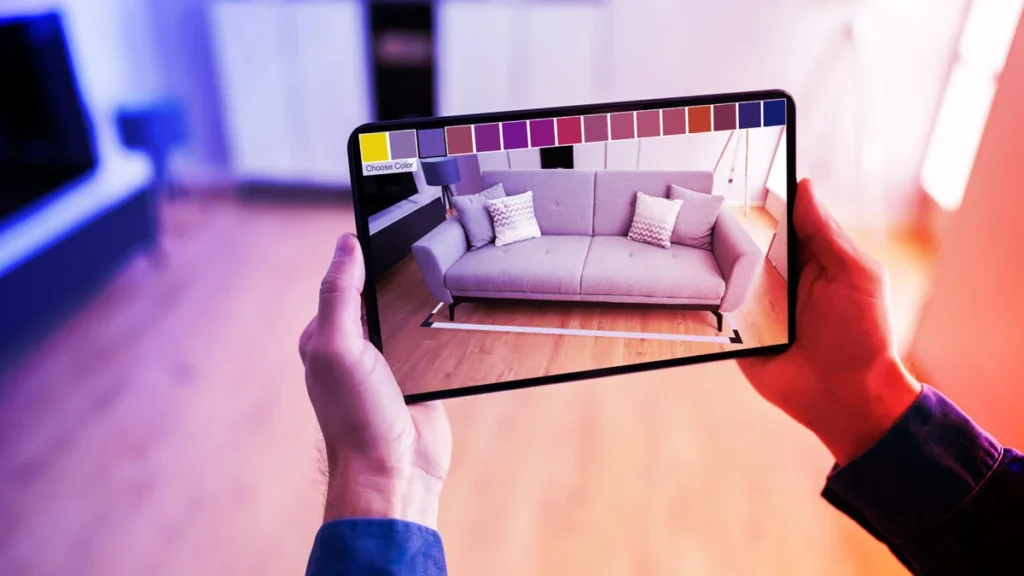
Idea:
Specialize in creating developed reality graphics for market businesses. Develop conversational and attractive AR experiences for product packaging, in-store displays, and marketing materials to enhance customer engagement.
Potential:
As AR technology gains grip, businesses are searching for creative ways to capture the attention of consumers. AR graphics can provide a unique and memorable brand experience.
Cost Estimate:
| Expense | Estimated Cost |
| AR Development Tools | $2,000 |
| Marketing | $1,500 |
| Website Development | $2,500 |
| Professional Development | $1,000 |
| Miscellaneous Expenses | $1,000 |
| Total Estimated Cost | $8,000 |
Key Risks:
Staying abreast of AR technology advancements.
Convincing businesses of the value of AR graphics.
Examples:
- IKEA Place app
- Gucci AR Sneaker Try-On
Steps to Start:
- Acquire skills in AR design and development.
- Showcase prototypes and case studies demonstrating the effectiveness of AR in retail.
- Collaborate with retail businesses for pilot projects.
Success Ratio:
Moderate, with potential for high returns as AR becomes more mainstream.
Time to Success:
8-12 months to establish expertise and secure projects.
Requirements:
- Proficiency in AR development tools.
- Understanding of consumer behavior and retail trends.
- Effective communication skills to convey the benefits of AR.
Key Tips:
Offer free workshops or demos to educate businesses about AR possibilities.
Build a network with technology and retail industry professionals.
8: Niche Market Merchandise Design
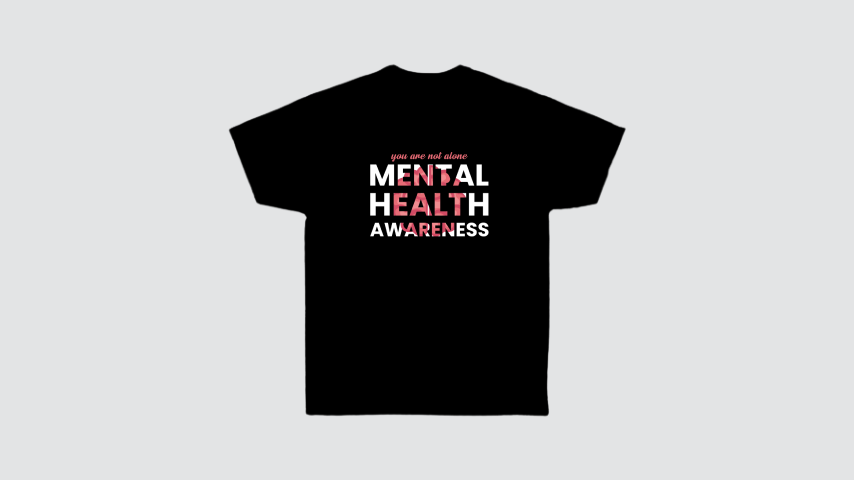
Idea:
Focus on designing graphics for niche markets, such as eco-friendly products, sustainable living, or specific collector communities. Create unique and personalized designs that resonate with these audiences.
Potential:
Niche markets often have passionate and engaged communities willing to invest in products that reflect their values and interests.
Cost Estimate:
| Expense | Estimated Cost |
| Design Software & Tools | $500 |
| Marketing | $1,000 |
| Website Development | $2,000 |
| Materials for Prototypes | $1,500 |
| Miscellaneous Expenses | $500 |
| Total Estimated Cost | $5,500 |
Key Risks:
Identifying and reaching niche audiences effectively.
Balancing creativity with market demands.
Examples:
- Dazey LA (empowerment-themed apparel)
- (And united by Blue (sustainable outdoor gear)
Steps to Start:
- Research and identify niche markets with a strong community presence.
- Create a portfolio with sample designs tailored to specific niches.
- Utilize social media platforms to connect with niche communities.
Success Ratio:
High if you can authentically connect with the chosen niche.
Time to Success:
6-10 months to gain recognition within the niche community.
Requirements:
- In-depth understanding of the chosen niche.
- Creativity in translating niche values into visual designs.
- Strong social media presence.
Key Tips:
Attend events or online forums related to the niche.
Collaborate with influencers or supporters within the niche.
9: VR Exhibition Design Services
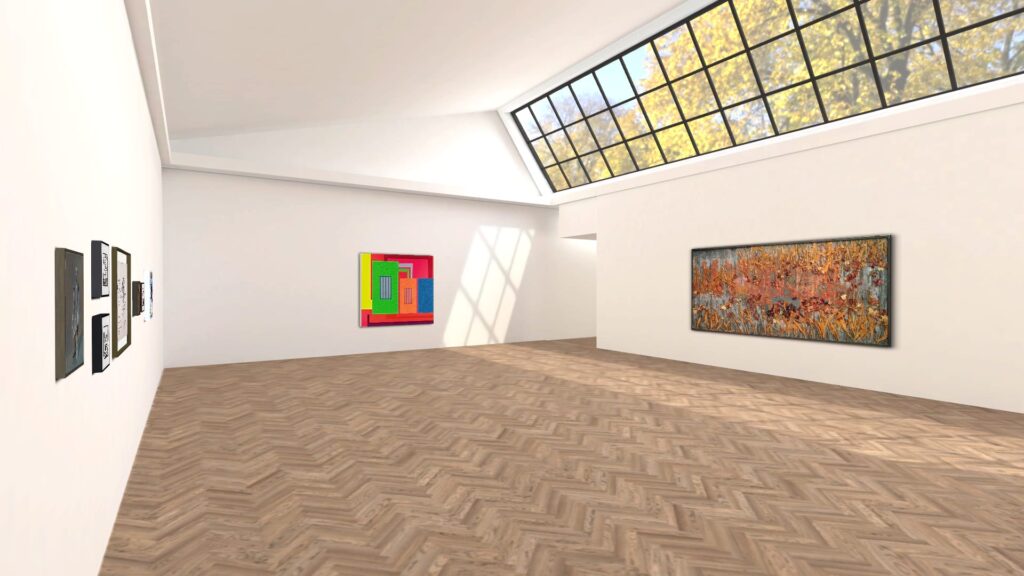
Idea:
Enter the virtual reality (VR) space by offering exhibition design services for virtual events, conferences, and trade shows. Create deep VR environments that showcase products or services, providing a unique alternative to traditional exhibitions.
Potential:
As virtual events continue to gain popularity, businesses are seeking ways to stand out in the digital landscape. VR exhibitions offer a cutting-edge and memorable experience.
Cost Estimate:
| Expense | Estimated Cost |
| VR Development Tools | $2,500 |
| Marketing | $1,500 |
| Website Development | $2,000 |
| VR Headsets (for demos) | $3,000 |
| Miscellaneous Expenses | $1,000 |
| Total Estimated Cost | $10,000 |
Key Risks:
Staying updated with VR technology advancements.
Convincing businesses of the effectiveness of VR exhibitions.
Examples:
- EngageVR
- The VR Society
Steps to Start:
- Acquire skills in VR design and development.
- Create a portfolio showcasing VR exhibition prototypes.
- Collaborate with event organizers or businesses hosting virtual events.
Success Ratio:
Moderate, with potential for high demand as VR becomes more prevalent.
Time to Success:
12-18 months to establish expertise and secure projects.
Requirements:
- Proficiency in VR development tools.
- Understanding of event planning and exhibition dynamics.
- Effective communication skills to convey the benefits of VR exhibitions.
Key Tips:
Offer virtual demos to showcase the immersive experience.
Collaborate with VR event platforms for increased visibility.
10: Personal Branding Photography and Design

Idea:
Offer a comprehensive service that combines professional photography with personalized graphic design for individuals looking to enhance their brand. Create visually appealing headshots, social media graphics, and custom design elements that align with clients’ personal and professional goals.
Potential:
As personal branding gains importance in various fields, professionals and influencers are seeking cohesive and visually appealing personal brand identities.
Cost Estimate:
| Expense | Estimated Cost |
| Photography Equipment | $2,000 |
| Design Software & Tools | $500 |
| Marketing | $1,500 |
| Website Development | $2,000 |
| Miscellaneous Expenses | $1,000 |
| Total Estimated Cost | $7,000 |
Key Risks:
Balancing photography and design expertise.
Convincing individuals of the value of investing in personal branding.
Examples:
- Sue Bryce Photography
- Jasmine Star (incorporating personal brand design)
Steps to Start:
- Develop photography and design skills or partner with a photographer.
- Create a portfolio showcasing before-and-after transformations.
- Utilize social media and personal branding events for marketing.
Success Ratio:
High, especially in industries where personal branding is crucial.
Time to Success:
6-12 months to establish trustworthiness and build a client base.
Requirements:
- Photography and design skills.
- Understanding of personal branding principles.
- Strong social skills for client conversations.
Key Tips:
Offer package deals for a comprehensive personal branding experience.
Stay updated with trends in personal branding and design.
11: Interactive Educational Content Design

Idea:
Focus on designing interactive and visually engaging educational content for e-learning platforms, training programs, and educational apps. Create graphics, animations, and interactive elements that enhance the learning experience.
Potential:
As online education continues to grow, there’s a rising demand for visually stimulating and interactive educational content.
Cost Estimate:
| Expense | Estimated Cost |
| Design Software & Tools | $500 |
| Animation Software | $1,000 |
| Marketing | $1,500 |
| Website Development | $2,000 |
| Miscellaneous Expenses | $500 |
| Total Estimated Cost | $5,500 |
Key Risks:
Meeting diverse educational content requirements.
Convincing educational institutions or e-learning platforms of the value of interactive design.
Examples:
- (Khan Academy (for interactive math lessons)
- (Duolingo (for language learning with gamified elements)
Steps to Start:
- Acquire skills in interactive design and animation.
- Develop a portfolio with sample educational content.
- Collaborate with e-learning platforms or educational institutions.
Success Ratio:
High, given the increasing importance of engaging in online education.
Time to Success:
6-10 months to establish a presence in the e-learning industry.
Requirements:
- Proficiency in design and animation software.
- Understanding of instructional design principles.
Collaboration skills for working with educators and content creators.
Key Tips:
Stay updated on e-learning trends and technology.
Showcase the effectiveness of interactive elements in improving learning outcomes.
12: Virtual Interior Design Consultation
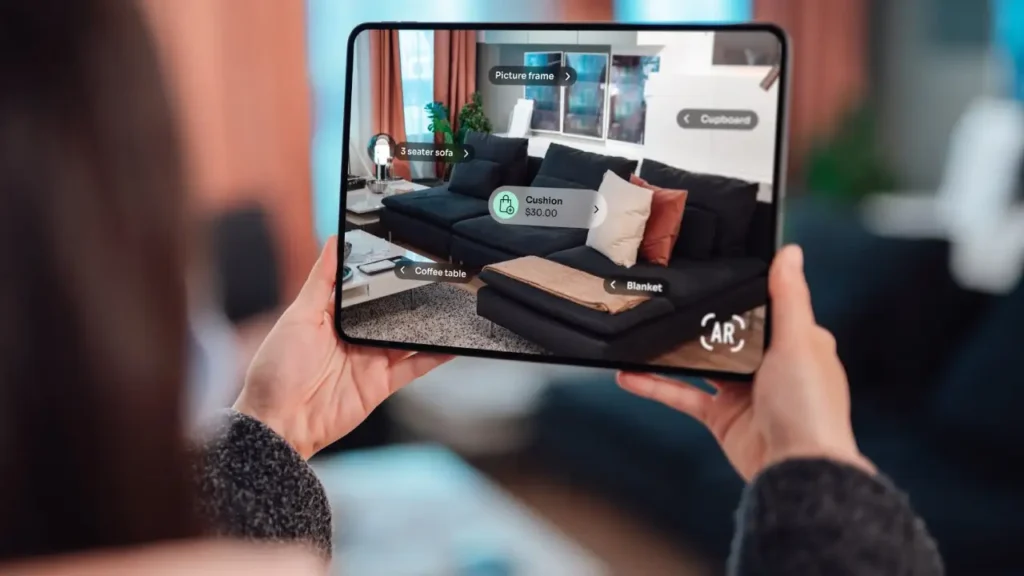
Idea:
Offer virtual interior design audience services, combining graphic design skills with interior design expertise. Provide clients with personalized virtual discussions, mood boards, and design plans for transforming their spaces.
Potential:
As remote work and virtual interactions become more common, individuals are seeking virtual solutions for home improvement and interior design.
Cost Estimate:
| Expense | Estimated Cost |
| Design Software & Tools | $500 |
| 3D Modeling Software | $1,000 |
| Marketing | $1,500 |
| Website Development | $2,000 |
| Miscellaneous Expenses | $1,000 |
| Total Estimated Cost | $6,000 |
Key Risks:
Balancing graphic design with interior design principles.
Convincing clients of the effectiveness of virtual consultations.
Examples:
- Modsy
- Havenly
Steps to Start:
- Develop skills in both graphic and interior design.
- Create a portfolio showcasing virtual design transformations.
- Use social media and online platforms for marketing.
Success Ratio:
High, especially with the growing interest in virtual interior design.
Time to Success:
8-12 months to establish credibility and gain clients.
Requirements:
- Proficiency in design and 3D modeling software.
- Strong understanding of interior design principles.
- Effective communication skills for virtual consultations.
Key Tips:
Offer package deals for complete virtual design solutions.
Use before-and-after visuals to showcase the impact of your virtual design services.




